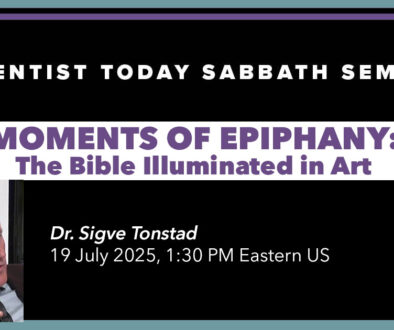Sharing Scripture — May 16-22, 2021
[symple_heading style=”” title=”Covenant Law” type=”h1″ font_size=”40″ text_align=”center” margin_top=”0″ margin_bottom=”30″ color=”undefined” icon_left=”” icon_right=””]
This is a tool for you to use if you lead a Sabbath School (SS) class or small group. It is keyed to the Bible texts used in the current week’s Adult SS lesson and includes a brief story from current news you can use to introduce the discussion and then a series of discussion questions in a relational pattern designed to build fellowship and spiritual reflection.
For use: May 16-22, 2021
Texts: Exodus 19:6; Isaiah 56:7; Hebrews 2:9; Deuteronomy 4:13; Deuteronomy 10:13; Amos 3:3; Genesis 18:19
When our founding fathers met to organize the fledgling United States government at the Constitutional Convention in 1787, they examined several models of governance. The ancient Greeks developed a form of democracy, including a body of legislators called the Senate. And the Enlightenment in Europe signaled a move away from a monarchy toward a government of the people. The Bible certainly provided instructions on moral and ethical living (but they didn’t want a theocratic government). Eventually, they found a viable model for our Constitution in our own backyard: The Great Law of Peace established by the Confederation of the Iroquois.
This Confederation began several centuries earlier when the “Great Peacemaker” united five nations: the Mohawks, the Onondaga, the Cayuga, the Oneida and the Seneca. These nations formed a multi-state government while maintaining their own individual governance, a model that reflected the desire of the Constitutional delegates to unite the colonies into a body of thirteen states.
Constitutional historians barely acknowledged the Iroquois’ influence for most of our nation’s history. Fortunately, we finally recognized our debt to the Iroquois for our Constitutional form of governance during the 1987 Constitutional bicentennial celebration.
Unlike the story presented here, the basis for the covenant that God established with the children of Abraham is very well known: the Ten Commandments. Deuteronomy 4:13 identifies the Ten Commandments as the covenant, written by God’s own hand on two tables of stone. In this document we see that God established a contract with two very simple terms: God will be our God and provide for our needs, and in return, we will obey God. This contract would serve as a righteous “governance” with Israel who were to be a kingdom of priests and not ruled by any human powers.
Of course, we know how well the children of Israel held up their end of the covenant. The Bible narrative follows this familiar pattern: Israel obeys and God blesses them; Israel gets careless and disobeys, and they find themselves in deep trouble; Israel cries out to God for help, and God intervenes on their behalf; Israel disobeys again, and the cycle continues. The one constant in the narrative is that God—unlike us—is always faithful and never abandons us.
The good news is that even though we often break our part of the covenant law, God provides the remedy for us: Jesus Christ the Righteous One. Jesus not only fulfills God’s part of the covenant; the atoning sacrifice of Christ provides our salvation from the penalty for our failures: the law of sin and death. Jesus, the one true King, paid it all.
[symple_divider style=”solid” margin_top=”20″ margin_bottom=”10″]
Connecting: Are there any laws in your current city or county statutes that you disagree with? What do you understand as the rationale behind that statute? What do you suggest to improve that law or make it more equitable? Share your thoughts with your group (through your online connections if you aren’t yet meeting in person).
Sharing: If you were to compose a Great Law of Peace for today, what would you say is the most critical element of that covenant?
- Each person must consider others as more important than themselves
- No killing, stealing, or lying
- Every person must spend one thoughtful hour each day in prayer and Bible study
- Every neighborhood must throw a block party once a week
- You are all free to do as you like, and you must let others be free to do as they like
- Other:
Applying: What are the current “laws” of your household, family or friend group? Are there rules or guidelines that could be changed for the betterment of all involved? Take time to review their conditions.
Valuing: How well are you holding up your end of the biblical covenant? Do you accept that you can always turn to Jesus as your advocate when you fall short of God’s ideal? Take time to do a deep inventory of your spiritual life and turn any areas of concern over to Jesus, remembering that God’s grace is sufficient for each one of us.
~ Chuck Burkeen
Photo credit: Google Meet




